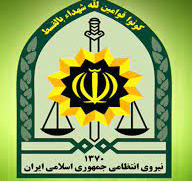چکیده:
زمینه و هدف: هدف از این مقاله بررسی راهبردهای افزایش میزان خودحفاظتی کارکنان پلیس اطلاعات و امنیت عمومی در پیشگیری از ارتکاب جرم جاسوسی با تاکید بر قوانین و مقررات موضوعه می باشد پلیس اطلاعات و امنیت عمومی یکی از پلیس های تخصصی فرماندهی انتظامی جمهوری اسلامی ایران است؛ که درتقسیم کار سازمانی این نیرو، وظیفه برقراری اشراف کامل اطلاعاتی و تامین اطلاعات مورد نیاز این نیرو برای اتخاذ تصمیم در شرایط اطمینان و اداره امور امنیتی آن را در حوزه امنیت داخلی، برعهده دارد یکی از وظایف مهم پاوا ناجا مقابله با جریانات سوء امنیتی از جمله جرایم جاسوسی می باشد بر همین مبنا مورد توجه سرویس های اطلاعاتی رقیب و معاند قرار خواهد گرفت این پلیس به پشتوانه قانون ناجا دال بر تجویز اقدامات اطلاعاتی از تمامی امکانات سخت افزاری و نرم افزاری فرماندهی انتظامی بهره می گیرد تا واکنش مناسبی در مقابل کنش های متقابل داشته باشد پاوا ناجا لاجرم جهت ایفای وظایف و نقش های خود ابتدا بایستی الگوی خودحفاظتی را در کارکنان خود اجرایی و پیاده سازی نموده تا مورد هجمه و آیب سرویس های رقیب واقع نشود محقق در این جستار سعی دارد تا با واکاوی دقیق موضوع با نگاهی تازه راهبردهای خودحفاظتی در پیشگیری از جاسوسی کارکنان پاوا فراجا پرداخته و در ادامه ارایه الگوی عملی در جهت ارتقای موضوع ارایه دهد. روش تحقیق: این تحقیق از حیث هدف کاربردی و از نظر روش، توصیفی- تحلیلی است. در این تحقیق برای رسیدن به اهداف تحقیق از طریق گردآوری اطلاعات با روش کتابخانه ای و با استفاده از فیش برداری منابع و همچنین استفاده از سایت های خبری و مقالات تخصصی استفاده شده است. یافته ها و نتایج تحقیق: یافته ها حاکی از این است که پیشگیری از جرم جاسوسی کارکنان پاوا ناجا به عنوان یکی از سازمان های اطلاعاتی کشور نیازمند برنامه ریزی مدون، مستمر، متنوع، مکرر و بلندمدت در جهت سیاست گذاری و ارائه الگوهای خودحفاظتی و خودمراقبتی جهت کارکنان است خودحفاظتی مسئله ای درون فردی و اساسی است که حاصل نمی شود جز با بکارگیری روش های نوین آگاه سازی کارکنان و خانواده ی کارکنان(در زمینه ی چشم انداز سازمان، اهداف متعالی پاوا، روش های جاسوسی سرویس های جاسوسی، قوانین موضوعه و مبانی عقیدتی و سیاسی) در جهت نیل به این هدف نیاز به یک سند راهبردی می باشد تا چشم انداز پاوا در جهت خودحفاظتی کارکنان را طراحی نماید خودحفاظتی در وهله ی نخست نیاز یه تصدی گری نهادی مستقل(حفا فراجا) و در ادامه مستلزم بسترسازی یکپارچه در پاوا ناجا می باشد بدیهی در صورت تحقق این مهم ضمن اینکه آثار بسیار زیانبار جاسوسی که حیثیت سازمان های اطلاعاتی را به چالش می کشد را به صفر خواهد رساند باعث انسجام و استحکام پاوا ناجا به عنوان یک سازمان اطلاعاتی نفوذ ناپذیر خواهد شد.
چکیده:
Background and purpose: This article examines the strategies of increasing the self-protection of intelligence and public security police officers in preventing the commission of espionage crimes with emphasis on laws and regulations. which, in dividing the organizational work of this force, has the task of establishing complete information elites and providing the information needed by this force to make decisions under conditions of confidence and manage its security affairs in the field of internal security. Espionage crimes are among them. On this basis, it will be taken into consideration by competing and hostile intelligence services. Based on the NAJA law prescribing information measures, the police uses all the hardware and software facilities of the police command to respond appropriately to the actions of the police. In order to fulfill his duties and roles, he must first implement and implement a self-protection model in his employees so as not to be attacked by competing services. Self-protection strategies to prevent espionage by PAVA Faraja employees and to provide a practical model to improve the issue. Research method: This research is applied in terms of purpose and descriptive-analytical in terms of method. In this research, in order to achieve the research objectives, it has been used to collect information by library method and by using sources, as well as by using news sites and specialized articles. Findings and results of the research: The findings indicate that the prevention of espionage by Pawa Naja employees, as one of the country's intelligence organizations, requires systematic, continuous, diverse, frequent and long-term planning in order to make policies and provide models of self-protection and self-care. It is for employees, self-protection is an internal and fundamental issue that cannot be achieved except by using new methods of informing employees and employees' families (in the context of the organization's vision, PAVA's transcendental goals, espionage methods of spy services, relevant laws and Ideological and political foundations) in order to achieve this goal, a strategic document is needed to design Pawa's vision for the self-protection of employees. In Pawa Naja, it is obvious that if this important is realized, while the very harmful effects of espionage that challenge the dignity of intelligence organizations will be reduced to zero, it will cause the cohesion and strength of Pawa Naja as an impenetrable intelligence organization.
خلاصه ماشینی:
واژگان کليدي: جاسوسي، پاوا، خودحفاظتي ١-دانشجوي دکتراي حقوق بين الملل عمومي دانشگاه آزاد اسلامي واحد بوشهر (نويسنده مسئول ).


(پژوهیار,
,
,
)
